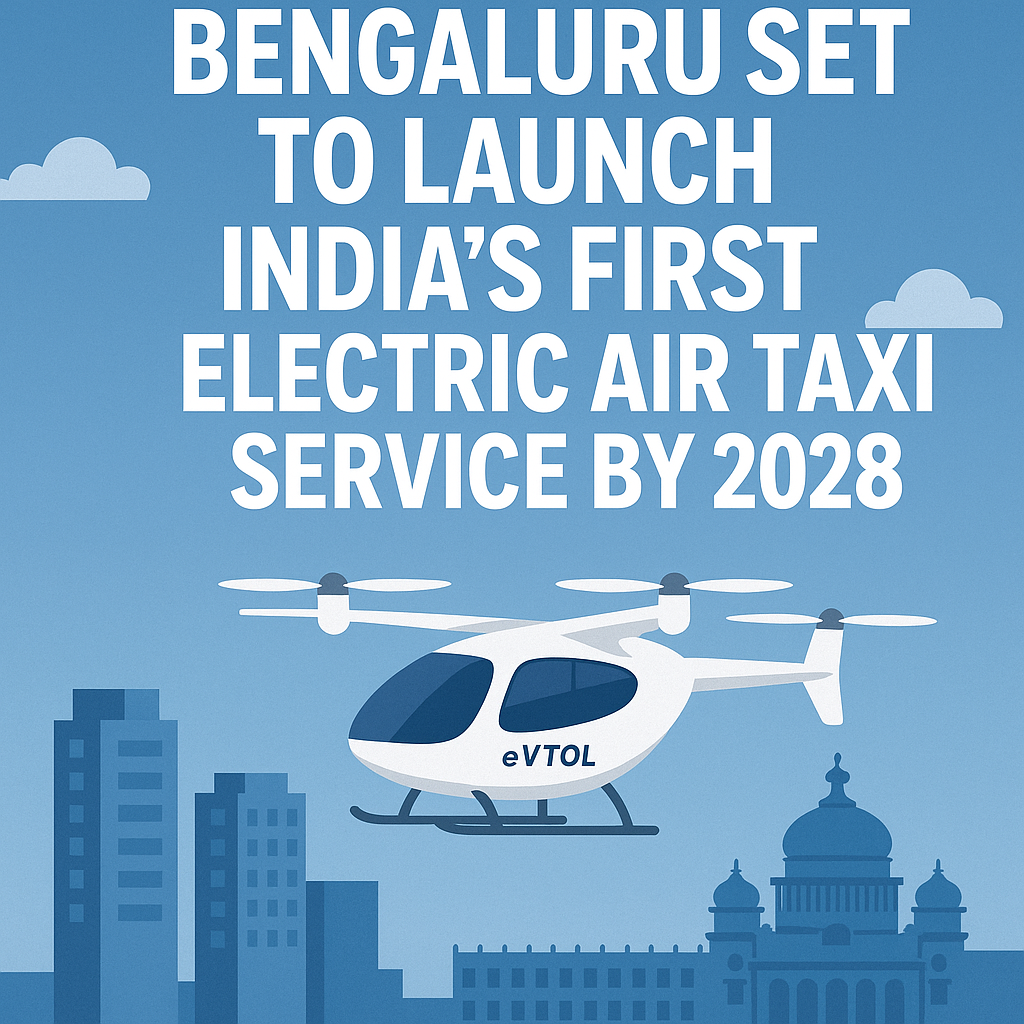Physical Address
18 C Ibbani Harohalli Village
Yelahanka Bengaluru 560064
Physical Address
18 C Ibbani Harohalli Village
Yelahanka Bengaluru 560064

Bengaluru, May 2025 – The skies over India’s Silicon Valley are preparing for a major transformation. Bengaluru is officially on track to become the first Indian city to launch electric air taxi services, marking a bold leap forward in urban mobility and smart transportation.
Spearheaded by local aerospace startup Sarla Aviation, the project introduces eVTOL (Electric Vertical Takeoff and Landing) aircraft that are designed for short intra-city travel. The company recently unveiled its prototype aircraft, named “Shunya”, showcasing a sleek, electric-powered craft that promises to bypass the city’s chronic traffic jams.
With a top speed of 250 km/h, a range of up to 160 km, and the capacity to carry six passengers and a pilot, Shunya is designed for flights lasting 10 to 25 minutes – a fraction of the time road travel takes today.
In a landmark development, Kempegowda International Airport (KIA) has signed an agreement with Sarla Aviation to become India’s first eVTOL-integrated airport. The partnership involves setting up dedicated vertiports and charging infrastructure that will allow e-aircraft to operate seamlessly alongside traditional aviation services.
One of the first routes being planned is between Electronic City and KIA. A drive that now takes up to 2.5 hours during peak traffic is expected to take just 18–20 minutes by air taxi.
Unlike helicopters, these air taxis are quiet, emission-free, and powered entirely by electricity. This makes them an attractive solution for both business travelers and environmentally conscious commuters.
Initial estimates suggest ticket prices will be in the range of ₹1,500–₹2,000 per ride, making the service competitive with premium cab fares to the airport.
Sarla Aviation is currently in talks to establish an eVTOL manufacturing facility in India, which could give a major boost to the local aerospace sector and generate employment opportunities. The company aims to begin commercial operations by 2028, pending regulatory approvals and airworthiness certifications from the DGCA.
With this initiative, Bengaluru is not just solving its infamous traffic problem — it’s setting the stage for next-gen, smart city mobility. If successful, similar models could soon be replicated in Delhi, Mumbai, and Hyderabad, transforming how Indians move within mega cities.